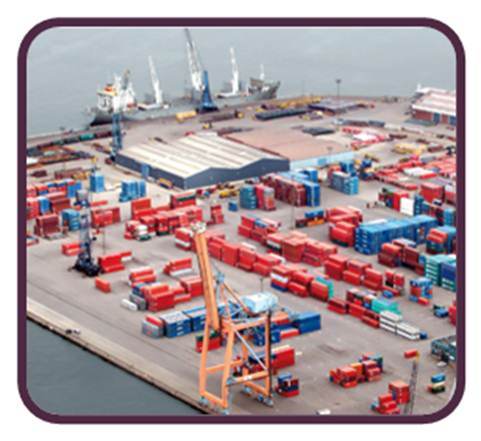Projects
Weastflows
Institute’s role: Co-lead partner
 Background: Weastflows (west and east freight flows) was a €9 million project designed to help enable freight movement in North West Europe (NWE) to be more efficient and sustainable. Weastflows explored and developed ICT solutions to make better use of existing infrastructure and encourage a shift from road haulage to more sustainable rail, sea and inland waterway transport. These solutions were piloted across a range of logistics networks to demonstrate how the new approaches could deliver real commercial benefits. The project also aimed to help NWE maintain its position as a competitive global freight hub and addressed the need for connected freight flows with the rest of Europe and beyond.
Background: Weastflows (west and east freight flows) was a €9 million project designed to help enable freight movement in North West Europe (NWE) to be more efficient and sustainable. Weastflows explored and developed ICT solutions to make better use of existing infrastructure and encourage a shift from road haulage to more sustainable rail, sea and inland waterway transport. These solutions were piloted across a range of logistics networks to demonstrate how the new approaches could deliver real commercial benefits. The project also aimed to help NWE maintain its position as a competitive global freight hub and addressed the need for connected freight flows with the rest of Europe and beyond.
Challenge: Efficient and sustainable movement of freight within Europe is vital for the social and economic well-being of the region. EU figures show that more than 2,400,000 million tonne-kilometres of freight is moved through Europe annually and this is increasing year-on-year (Eurostat 2010). Freight transport activity continues to grow strongly and is projected to rise by 2.1% per year until at least 2030. (European Commission accessed on 24 January 2013). Europe’s freight network suffers from congestion and bottlenecks, especially on the roads, but available capacity on other modes, particularly maritime transport, presents opportunities to alleviate this growing issue.
Activity: Research activity and practical pilot demonstration projects were developed by partners from a range of countries including Belgium, Ireland, France, Germany, Luxembourg, the Netherlands and the UK:
Improving existing infrastructure capacityProject partners mapped the roads, railways, inland waterways and coastal facilities of the North West Europe region, highlighting bottlenecks and congestion points as well as routes that were under-utilised. Partners analysed freight flows by transport mode and freight type identifying where more sustainable alternatives could be employed. This data was detailed on an 'atlas' of maps. The findings were shared with transport buyers and suppliers via an online webmapping portal to help develop realistic and practical, alternative, sustainable supply chains. They were also used to inform policy recommendations for future transport planning at EU level.
Developing sustainable logisticsExamining road-based supply chains within North West Europe, project partners identified if a multi-modal option would be a realistic and sustainable alternative for private sector operators. This included analysis of NWE freight flows by mode and freight type and identifying areas where sustainability could be improved. A report was produced to detail the issues that were preventing transport users and suppliers from embracing more sustainable modes, as well as guidelines on how to address these challenges.
Applying innovative ICT solutionsProject partners identified and analysed the range of ICT solutions currently available to transport operators and logistics companies. Partners then undertook a series of practical ICT-based pilots to trial these solutions in practice in France, the Netherlands and the UK. This included the development of an intermodal route planner. The system allowed transport buyers and logistics professionals to identify and plan optimal and sustainable freight routes by using a combination of road, rail, barge and shortsea transport. A pilot was also developed that focused on road transport and aimed to assist trucks become safer and more sustainable through more efficient driving techniques.
Strategic influencing
Designated a strategic initiative by the EU, Weastflows captured emerging practice and shared this learning with public authorities to influence their future plans and with businesses to highlight innovative opportunities to help drive sustainable economic growth. The project’s extensive network of observers disseminated this information across the wider freight network both within Europe and farther afield. Project activities also linked with other transport policy work being undertaken by other Interreg projects, including LO-PINOD and iTransfer.
Access the project video for an overview of Weastflows by clicking here.
Funders: The project was part-funded by the Interreg IVB NWE programme
Further information: For more information on Weastflows visit www.weastflows.eu


